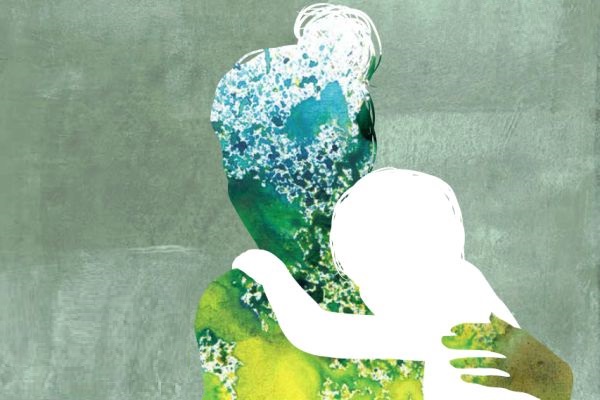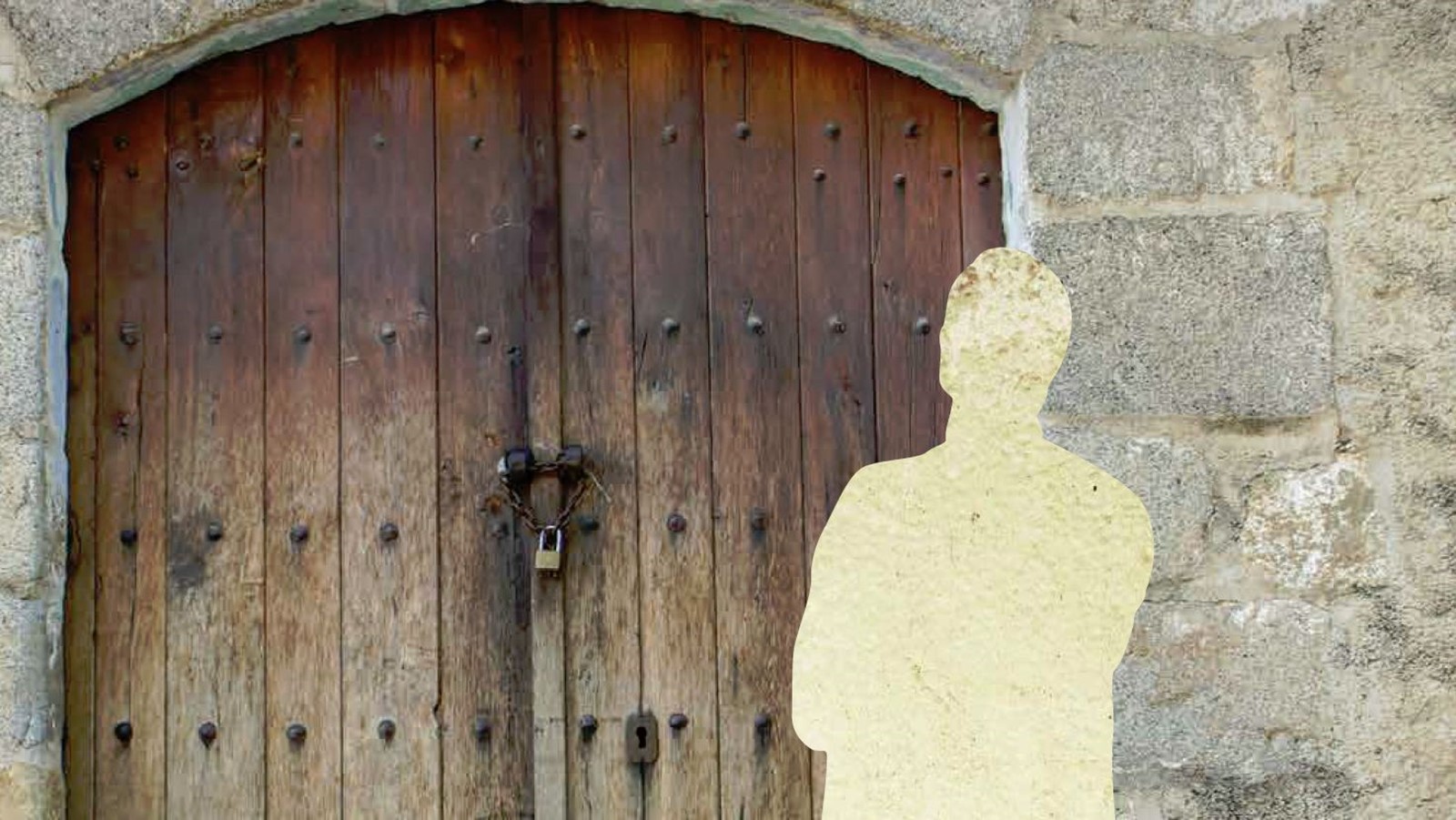‘Psychological “theory groups” might better be viewed as nomadic tribes establishing mobile “base camps” to sustain them in their wanderings, rather than settled civilisations laying the foundation stones for a timeless edifice of theory and practice.’1
Sadly those base camps serve also as territory to be defended and the resultant squabbling is the behaviour of a psychological nursery. There is some evidence of writing that parallels this primitive fighting in the world of spirituality but I hope that a ‘not knowing’ stance beloved of mature therapists will characterise our thinking. And that a provisional perspective will be our shared conviction about the nature of our subject.
In this article I want to say why my current project, which is to see if I can develop a putative psychology of spirituality, can only be derived from my understanding of my own developmental story. My meaning making is just that, mine. ‘And this is especially so if there is no truth about our spiritual nature that can be known.
If one word could characterise this intended formulation of a psychology of spirituality, it is developmental, and a subtitle would be: ‘Is there a psychology of my spirituality?’ In this article I will try to explain the ’developmental’, the ‘my’ and that last, perhaps provocative, claim about what can be known.
My story – an introduction
When I first outlined the book I wanted to write, I had a concept about my subject in mind. Human beings everywhere and in all ages demonstrate a need within to express their experience of their world and of other human beings. They do so in metaphors that appear in those explorations about human nature and are likely now to be put under the rubric of ‘spirituality’.2-6 Originally trained as a scientist, I want to explore this phenomenon psychologically and challenge myself to stay within that discipline.
That book that has begun within me was first in my head, titled ‘The Return’. Many authors have wondered about the world of the neonate and the belief that all our experiences of life, including those in the womb, are embedded or embodied within us. I notice as those words emerge how we will always need such metaphors until neuro-biology reveals technical explanation we can grasp.7 The ‘blooming buzzing confusion’8 of the baby’s initial experiences that are laid down in our emotional memory we might presume to be accessible throughout life. I imagine most of us subconsciously have the privilege of having a sense of that safety and security in the comfort of the womb. To be pulled back into that ‘heaven’ might be thought about as both natural and desirable. So my early assumptions, and my not very well-hidden agenda, was to point to how, throughout our lives, unconscious dynamic forces are striving within us, prompting a reaching out to that prenatal state, and somehow projecting them externally and noticing them internally. So spirituality’s metaphors are needed to articulate these intimations that come to us.
But the field for thought and study is so vast and rich that this notion of a ‘return’ being the common experience of all humankind was not yet enough for me. Our choice of metaphors for articulation of that awareness I think of as an expression of our spirituality, which arises from personal constructs for meaning making. This is, after all, my experience and thus my spirituality.
About meaning making
How was it and when was it in my life that I started using the idea of ‘personal constructs’ to communicate something so significant? While arrogance may well remain part of my personality, the dogmatic assurance that led to early life, tightly construed pronouncements has certainly evolved into a genuine need to bow before that which is greater than I can begin to grasp and comprehend. Discovering personal construct psychology provided a meta-psychological narrative into which other more bounded ways of making meaning of our experience and perceptions are incorporated. Psychological theories each use their own metaphors about the same human subject and that human subject’s expression of and response to all of life’s events and occurrences. But I am reasonably sure that the paradigm into which I am invited by personal construct psychology only penetrated my comprehension when I was ready to receive it.
Others reflect on their personal experience as they explore their understanding of spirituality; for example, Professor David Tacey.9 I note he writes of ‘the spirit’, and the definite article is troubling to me as I write now. George Kelly’s personal construct psychology10 holds that there may be a reality that is independent of any human conceptualisation or construction of it; what humans normally experience is an approximation or an interpretation of that reality. From the perspective then of this theory, the external reality can only be approached, but never fully understood. We may not transcend our subjective constructs to experience any objective reality. It is wiser for me to speak therefore of ‘a’ spirit and of ‘a’ spirituality.
Personal construct psychology came into my awareness at a time in my story when I needed to let go of the certainty required by the evangelical culture I served in order to listen to and be respectful of other people’s construing of their experience, and abandon the desire to convert them to my way of being. I can attempt to extrapolate from my understanding to human experience in general. But in truth, since everyone else is in a process of development also, I would be wise also to listen to the meaning that they make of their experience of being human in the world at that point in time, and value that ability to make meaning of a sometimes ineffable encounter with the world.
Buddhism and personal construct psychology both assert that human beings all hold an interpretation or construction of that objective reality, but Buddhism has a belief that meditation is the way by which we can rise above that imperfect apprehension and ‘know’ the world. It is thus prescriptive about the existence of that reality (as religions must also be) and that it can be experienced and known, whereas Kelly maintained that our constructs are descriptive of human nature and that whatever we mean by ‘God’ or ‘reality as it is’ cannot be known. Buddhism requires that those personal constructs are pathological and to be transcended. I maintain here that my constructs determine my development and my spirituality and that the ongoing drive to reconstrue is at the heart of mature, healthy human nature and points to the very nature of spirituality. In other words, it is this drive, common to all human beings, that is the core of that which we call spirituality.
My story
So I will sketch my autobiography to give reason for these thoughts and to underscore why I am saying that my spirituality is developmental and that this perspective is core to speaking about it. My hypothesis is that this process of human development, which involves letting go of some constructs once tightly held and, as they become loosened, trying on others, is what is at the heart of what we call spirituality.
My father was a Japanese prisoner of war. He was missing from the ‘greenhouse’ of the family and culture in which I was raised – I like this metaphor. We do not easily recognise the atmosphere and environment of the family and social system in which we are raised, but it fundamentally shapes and informs who and what we are. He returned when I was 10, died when I was 18 and I have little memory of him. I left the home from which I was emotionally distanced at 17 and joined the regular army. When I moved to Manchester for my first degree in electrical engineering, unknown to me was my father’s ‘background in electrical engineering in the Royal Artillery. This move was probably to be near to the girl I had met at the Manchester Ritz dance hall as a soldier seeking company at the weekends. For a while we did not meet but on those weekends that we did, she had introduced me to the Baptist church in her village. I went with my landlady to her Baptist church and found there a number of students with whom the sense of belonging I now believe I sought was partially satisfied. Baptism into that evangelical culture took place along with avowals of my faith in Jesus Christ as my Lord and Saviour. Marriage and a career as an engineer in Trafford Park followed, as did a love of Manchester United. It was, after all, 1958. Munich, February 1958, saw the death of many of the ‘Busby Babes’.
I discovered that I was a poor engineer but a better manager and was offered a post in Scotland by a former head of department. My family became members of a conservative Baptist church from which seven men including myself went into full-time Christian ministry over a four-year period. I had wanted my firm to send me on an MBA course; the apparent alternative was to follow ‘a call’ to being a Baptist minister and I chose the joy of studying theology, psychology and philosophy of religion in Switzerland. The psychological pressures make more sense now of what I needed and sought. The search for meaning was being engaged but so was the continuing pathological drive behind it. My experience of burnout continued there and on return to Scotland, as a minister, where my only post would be for 18 years. I had begun to realise that my salvation from inner turmoil might be found in therapy. This led to me to persuade others to set up a counselling training agency together (then known as The Pastoral Foundation). A colleague in this project, David Lyall, at New College, opened a window for me concerning clinical pastoral education in the US – learning by submitting one’s experience of almost anything to the supervisory gaze of others. There I at last began therapy – away from home – and facing the demons, which brought me close to suicide.
Back home, the encounter with Baptist expectations, my growing awareness of psychological constructs, the demand to preach two or three times a week and the pastoral care and counselling of a large city centre church and those who came to us ‘off the street’, meant not only considerable intellectual challenge for authenticity but also the desperate need for continuing therapy. However, I had embarked on my third degree, the Doctor of Ministry, from Princeton Theological Seminary, where I could submit all my thinking and experience to the analysis of colleagues. I researched the resistance to counselling in the evangelical churches in Scotland with particular reference to the theme of shame. The culmination of this process for the church was that they asked me to leave since I was clearly no longer meeting the more tightly construed understanding of the needs of some of the members of that Baptist church. That I should have left much earlier is clear to me now.
I became an accredited therapist and leadership consultant offering training to others in those arts. With a most valued cognitive behavioural colleague and developing expert in personal construct psychology, Edith Cormack, we sat down and in one day designed a postgraduate diploma in counselling. The course was accredited by BACP and validated by Queen Margaret University, Edinburgh. It was a fulfilment of all of our respective personal psychological and spiritual struggles. It was the meta-psychology of personal constructs that asserted that all models of therapy were just different sets of constructs of the search to understand the same human beings and their behaviours.
Now I was passing on to others that which had developed in me. We were showing the utmost respect for the autonomy, value and personal construing of our trainees, not inviting them to become accredited members in any particular psychological base camp, but trusting them to work out their provisional understanding of their clients. They were, of course, also working out and testing their own theories of change and theories of mind, which were less to do with the absorption of base camp ideology and more a bringing to awareness of their own spiritual and psychological journeys thus far.
And finally… for now
I am suggesting, of course, that all our understanding and its expression are necessarily provisional. I am asserting that within this respect for and reverence of the other person as well as recognition of my own ever-changing construal of life, others and the world, is revealed the very nature of what we term spirituality. I do think, along with Keith Ward,11 that it is a more elegant response to our experience of our world and cumulative history of thinking about our personal experience to suggest that there is a God. I also think that such a God cannot be known but I choose to live now as if I do exist in the ‘mind of a creator’.11 I wonder if perhaps that is what gives rise to my restlessness and continued search for meaning? I know that I need the language of spirituality to be able to articulate my construing that this experience seems to be within us all. I have not yet set aside the idea of a ‘Return’ to that sense of ‘blooming, buzzing confusion’8 and am still leaning towards that as a valid first cause dynamic. But in truth it does not matter. Life itself may well have a purpose of which I cannot know, but a psychology of spirituality is the framework of meaning within which I hope to continue to explore the terrain and maybe even without the safety of a base camp.
Dr Peter Bowes is a BACP registered senior counsellor and supervisor working in private practice in Cumbria, and a Methodist local preacher.
More from Thresholds

Blocks to inner healing
Free article: Jennie Cummings-Knight asks ‘Do we really want to be free or is it too scary?’ Thresholds, Spring 2015

It's God's job to do the ripples
Open article. David Waite explores his approach to the spiritual elements of his counselling practice. Thresholds, Winter 2014
References
1. Neimeyer R. In: Raskin JD, Bridges SK. Studies in meaning: exploring constructivist psychology. New York: Pace University Press; 2002 (pp247–264).
2. Hardy A. The spiritual nature of man: a study of contemporary religious experience. Oxford: Clarendon Press; 1979.
3. Underhill E. Mysticism: a study in the nature and development of man’s spiritual consciousness. London: Methuen; 1911.
4. Armstrong K. The case for God. New York: Knopf; 2009.
5. Klein J. Jacob’s ladder. London: Karnac; 2003.
6. Mithen S. The prehistory of the mind. London: Thames and Hudson; 1996.
7. Sapolsky RM. Why zebras don’t get ulcers. New York: St Martin’s Press; 2004.
8. James W. The principles of psychology. Cambridge, MA: Harvard University Press; 1981. Originally published in 1890.
9. Tacey D. The spirituality revolution: the emergence of contemporary spirituality. New York: Routledge; 2004.
10. Kelly GA. The psychology of personal constructs. New York: WW Norton; 1963.
11. Ward K. Why there is almost certainly a God; doubting Dawkins. Oxford: Lion Hudson; 2008.
